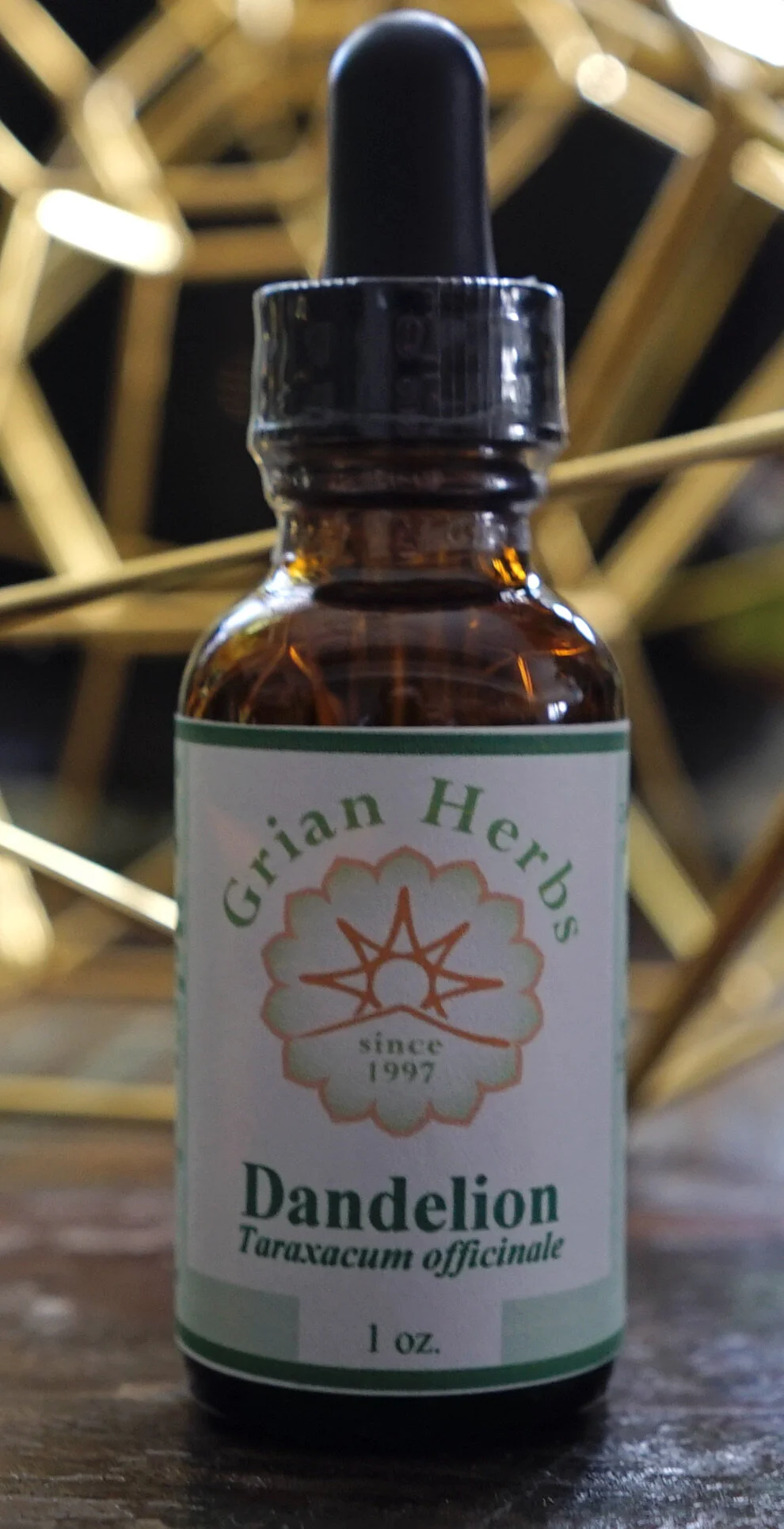Dandelion (Taraxacum Officinale)
Dandelion (Taraxacum Officinale)
Everyone knows this bright member of the Aster family, the Compositae. It begins to flower in late May, turning into the familiar puffballs and scattering its prolific seed to the wind. We harvest the most tender leaves as a Springtime tonic, but really its greens are excellent all through the year. The flowers are a good food source, cooked in fritters or in a stew. The root is harvested in the fall (a bit too watery in the spring). Like other ‘weedy’ plants, it grows almost everywhere – but we let it find a home in rich garden beds here and there, so that nice, fat roots can develop. Elemental associations: Air
Phytochemistry: Triterpenioids, bitter principles, inulin, choline, potassium
Actions: Leaves: Diuretic, urinary tonic. Roots: Cholagogue, alterative, tonic
Specific systems: Leaves: Urinary. Root: Digestive, general tonic
The Dandelion is a powerful herb. It is also extremely safe. Most of its cooling power focuses itself on the liver (root) and the kidneys (leaf), and although the individual parts of the herb work well on those respective systems, the combination of the two provides for improved detoxification and smoother, safer action. Its action on the liver is remarkable, and well documented. It is an essential ingredient of any hepatitis treatment, along with Milk Thistle, to help safeguard and heal the liver. It is also an excellent gallbladder remedy, stimulating the release of bile from this organ and promoting the release of stones. Again, a well-functioning gallbladder serves to keep the body cleansed of toxins.
The leaf is probably the best herbal diuretic available. It helps and stimulates the kidneys to release more water from the system, clean the blood and fluids, and is also excellent to heal edema and alleviate the symptoms of the ‘dropsy’, or congestive heart failure. Unlike other diuretics (pharmaceuticals lead the list here), Dandelion gives the body a net gain of Potassium, because there is more of this important mineral present in the herb than in the water that leaves the body through the kidneys. For this reason, this herbal diuretic will not aggravate high blood pressure or put extra strain on the heart. In fact, it is and excellent aid to relieve hypertension.
As an herbal ‘bitter’, Dandelion stimulates gastric secretions in the stomach that aid in smooth and complete digestion. Along with this comes increased absorption of nutrients and a decrease of toxic by-products: another powerful cleansing action. Another virtue of bitters is their ability to decrease the swings in blood sugar some people can experience after (or before) a meal.
It is sometimes ironic that a plant so widespread and despised might be an answer to modern life’s many toxic threats; conversely, it is a great example of how Nature around us stubbornly provides for what we need. I think it underlines the love and connection life shows on this planet: even amidst the constant stream of pollutants we burden it with, the Earth provides a simple remedy to protect us from our own waste.
Indications: Root: Debility, digestive weakness, hepatitis, hypoglycemia, diabetes. Leaves: Hypertension, edema, kidney problems (deficiency and congestion)
Contraindications: Absolutely none.
Preparation/Dosage: Leaf tea, infusion of 4 TBS per pint of water. Root decocted, 3 TBS per pint of water. Tincture of the leaf, 40%, 1:4 , ¼ tsp. 3 times daily. Of the root: 40-50%, 1:3 to 1:5, taken ½ tsp. 2-3 times daily before meals.
Size: 1 fl oz

